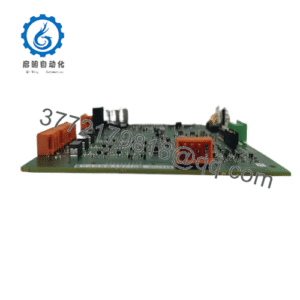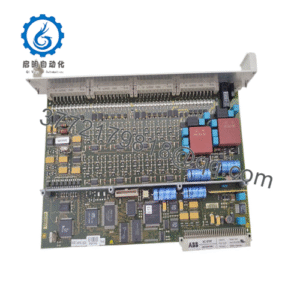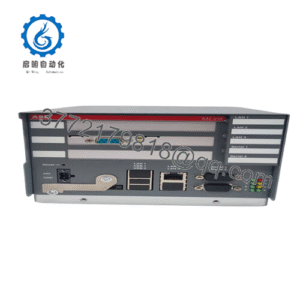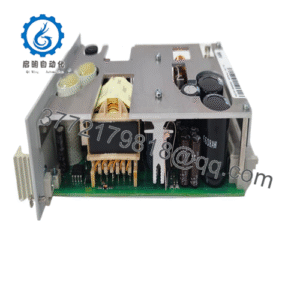Description
In the intricate ecosystem of industrial automation, where legacy workstations must interface with field controllers over proprietary buses to maintain real-time data flows without the drag of communication lags or hardware incompatibilities, engineers often confront the obsolescence trap: outdated PCI slots in engineering stations that can’t keep pace with evolving DCS demands, leading to stalled configurations, diagnostic blind spots, or forced migrations that balloon capex and downtime. Picture an oil and gas control room running Advant OCS, where operator stations rely on seamless MB300 Ethernet links to MOD 300 subsystems—any bottleneck in accelerator performance could fragment alarm propagations or setpoint updates, risking overpressure events or inefficient throttling that cascades into production shortfalls amid regulatory scrutiny. Or envision a pulp mill’s engineering console, embedded in a hybrid Advant-800xA setup, where sluggish real-time handshakes from field I/O delay recipe downloads, eroding batch precision and compliance traceability in process control environments where every cycle deviation dents yields. These aren’t rare relics; they’re the persistent pressures in high-reliability operations, where accelerator boards must deliver low-latency bridging to sustain modular integrations without the engineering overhead of full workstation swaps or custom protocol emulators.
The ABB PU515A 3BSE032401R1 steps in as a Real-Time Accelerator (RTA) PCI board for ABB’s Advant OCS and MOD 300 systems, purpose-built to enhance communication throughput in engineering stations like the Advant Station 500 series. It addresses the engineer’s core need for deterministic data exchange, featuring dual-channel MB300 interfaces to connect Unix-based operator stations directly to controller subsystems over the proprietary eDCN Ethernet bus, ensuring sub-10ms latency for command acknowledgments and process variable polling. In legacy-heavy deployments such as master control systems or distributed SCADA outposts, the ABB PU515A 3BSE032401R1 becomes indispensable, its PCI form factor enabling drop-in upgrades from older PU515/PU518/PU519 models without OS disruptions, while supporting up to 1 km cable runs for robust field tying. By prioritizing fault-tolerant buffering and no USB dependency for core ops, it minimizes the pitfalls of packet discards or boot failures, channeling clean I/O signals that keep process control loops humming, reducing the frustration of intermittent link drops that plague underpowered accelerators.
- PU515A 3BSE032401R1
Engineers in the know appreciate how the ABB PU515A 3BSE032401R1 demystifies legacy lifelines in industrial automation—it’s the board that doesn’t overhaul but overclocks, with MB300 protocol mastery that lets you layer diagnostics from MOD 300 controllers without middleware mazes, freeing cycles for tuning rather than troubleshooting. For teams sustaining Advant footprints amid migrations to 800xA, it trims the opacity of bus silos, ensuring high reliability that aligns with uptime SLAs and audit trails. Whether bridging remote subsystems or centralizing operator views, it ensures your signals stay synchronized, curbing the discord that disrupts dashboards and fortifying the operational resilience your production rhythms require.
The ABB PU515A 3BSE032401R1 resides at the workstation-to-field nexus in your Advant OCS architecture, plugging into PCI slots of HP Unix engineering stations to mediate MB300 traffic between operator software and MOD 300 controllers, where its dual channels encapsulate commands—like alarm clears or trend requests—into Ethernet frames for eDCN propagation, with embedded MCUs handling acknowledgments to prevent session stalls. It integrates natively with ABB’s Advant Station 500 series, where the RTA offloads real-time polling from the host OS, buffering up to 256 events for forensic exports via serial dumps. In a control room setup, it mounts internally alongside graphics cards, its firmware—upgradable via ABB’s tools—auto-negotiating duplex for ring topologies that weather cable faults without data loss.
Its interplay with the system is straightforward yet potent: tether to a MOD 300 subsystem, and it’s validating handshakes on boot, with status LEDs signaling channel health or buffer overflows for quick triage. Diagnostics flow through Unix consoles, logging throughput metrics or link drops for root-cause dives, and its hot-plug design refreshes connections mid-session without application crashes. Positioned as the accelerator in operator stacks, the ABB PU515A 3BSE032401R1 excels in centralized engineering hubs, scaling from single-station ties to multi-user federations via eDCN extensions, its MB300 stack easing grafts onto legacy buses like AB Expanse. For transitional plants blending Advant with modern OPC DA, its protocol focus curtails emulation layers, letting you curate control canvases over corralling comms quirks.
| Specification | Details |
|---|---|
| Model Number | PU515A 3BSE032401R1 |
| Brand | ABB |
| Type | Real-Time Accelerator PCI Board |
| Input Voltage | 5 V DC (PCI slot) |
| Operating Temp Range | 0°C to +55°C |
| Mounting Style | PCI Slot |
| Dimensions | 312 x 100 x 20 mm (PCI standard) |
| Weight | 0.25 kg |
| Interface/Bus | Dual MB300 Ethernet Channels |
| Compliance | CE, RoHS, IEC 61131 |
| Supported Protocols | MB300, eDCN Ethernet |
| Typical Power Draw | 5 W |
Incorporating the ABB PU515A 3BSE032401R1 equips your legacy setup with a reliability ethos tuned for the thrum of operator interactions, where its buffered channels and error-correcting frames preserve session wholeness amid network noise or host swaps, yielding performance consistency that steadies data tides and averts the desyncs that derail diagnostics. In Advant consoles abuzz with multi-user polls, this means engineers who collaborate on live models without the jitter that jars joint reviews—directly honing the fidelity your trend analyses and alarm hierarchies honor, sans the shadow of stale snapshots or boot blackouts.
The assimilation accrues with subtlety, lightening engineering overhead by license-free provisioning that ripples configs station-wide; slot into a PCI bay, and it’s handshaking with MOD 300 in a reboot, while channel pings distill health to console cues, not crisis calls. Engineered for the span of OCS outlasts, the ABB PU515A 3BSE032401R1 instills maintenance finesse through heartbeat monitors that herald buffer bloat, elongating probes from weekly watches to monthly metrics and reallocating acumen to application evolutions. In the grander grid, it nurtures an automation nexus primed for augmentation, where appending OPC endpoints atop MB300 spines amplifies acuity without foundational fractures, vouchsafing long-term performance that harmonizes with fiscal horizons and hybrid harmonies.
In oil and gas SCADA rooms, the ABB PU515A 3BSE032401R1 conduits Advant stations to MOD 300 controllers, shuttling wellhead statuses for flow orchestration amid pressure fluxes—its dual-channel prowess upholds critical system uptime in process control realms where polling lags loose loads, folding into Harmony for holistic handoffs. Chemical operator consoles enlist it for batch recipe ties, coupling setpoint downloads with real-time yields; here, high reliability counters vapor-veiled variances, enabling precise sequencing that safeguards lot ledgers without link lulls.
Renewable control centers complete the triad, bridging eDCN backbones with subsystem webs for turbine oversight—the board’s buffering steels against transient outages, anchoring continuous uptime in dispersed process control environments that prize protocol parity over perimeter patrols.
PU515 3BSE000219R1 – Legacy predecessor for basic MB300 acceleration in older Advant stations.
PU516 3BSE013064R1 – Enhanced variant with added serial ports for hybrid comms extensions.
PU518 3BSE000220R1 – Compact alternative for space-limited PCI upgrades from PU515.
STUP-PU515A-PU51X – Upgrade kit companion for seamless exchange to PU515A configs.
MB300 Interface Card – Bus adapter add-on for eDCN expansions in MOD 300 networks.
Advant Station 500 Base – Workstation host for RTA board integration in OCS setups.
PU519 3BSE000221R1 – High-throughput model for multi-user operator station tie-ins.
When outfitting a Unix workstation for the ABB PU515A 3BSE032401R1, confirm PCI slot specs—33 MHz/32-bit minima suffice, but signaling mismatches can stall detection, so probe with a riser per ABB’s compatibility matrix. Ensure chassis ventilation sustains 15 CFM over the slot, particularly in rack-dense rooms where thermals top 45°C—cross ambient profiles with your cooling quotient to forestall throttling. Firmware prep seals it: procure the MB300-optimized build from ABB’s legacy vault, sync to your Advant OS revision, and validate session handshakes on a shadow emulator to affirm protocol parity pre-production.
In the operational flow, oversight orbits informed intervals over incessant inspections. Bimensual console cursors for channel stats can unmask throughput troughs, prompting a duplex diagnostic before drops deepen. Semiannually, reseat the board with ESD guards, wiping gold fingers against oxidation in dusty dens, and torque retention clips to 0.2 Nm where vibes vie. Cap with an annual protocol purge: emulate traffic torrents, retune if latency lurches past 5 ms, and catalog counters for creep clues like packet discards. These measures marshal the board’s monitors to perpetuate your industrial automation’s mesh, rendering regimen a relay, not a rupture.

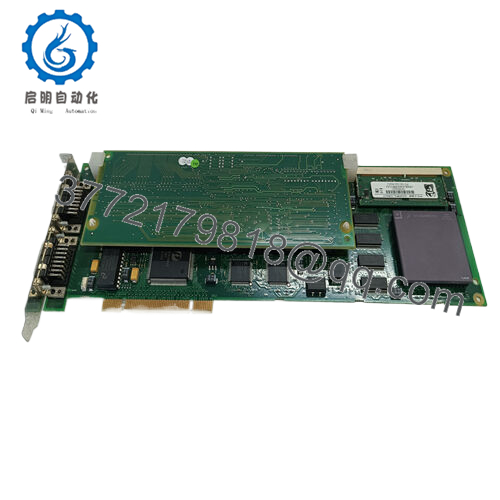
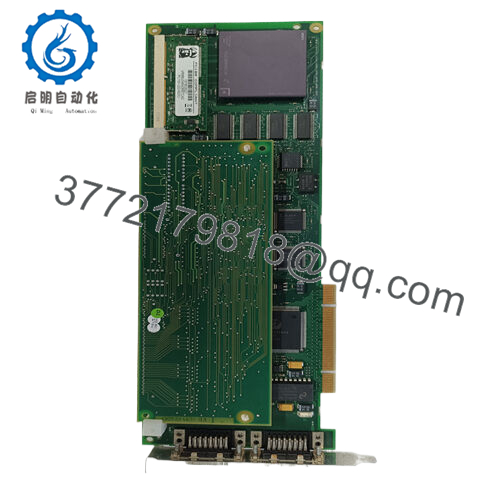
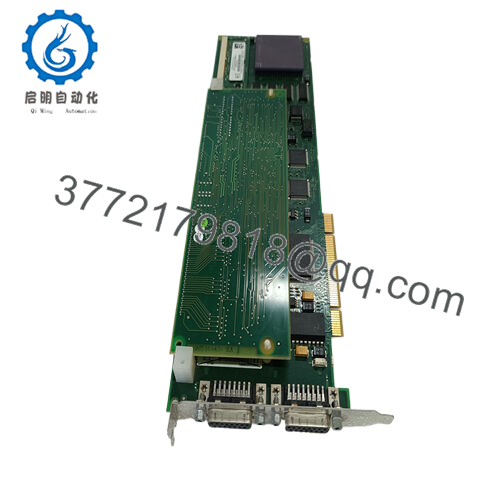
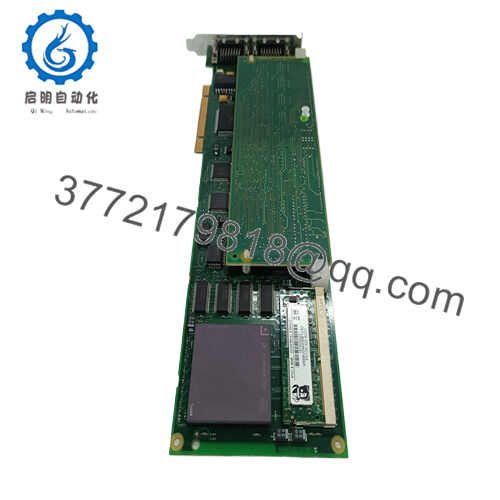
 WhatsApp: +86 16626708626
WhatsApp: +86 16626708626 Email:
Email:  Phone: +86 16626708626
Phone: +86 16626708626
